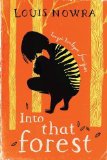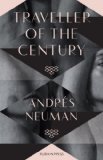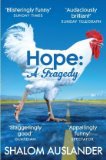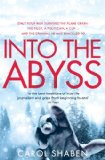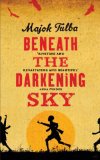Five words from the blurb: invention, light bulb, Edison, electric chair, immorality
I’m drawn towards books with shiny gold covers so Brilliance stood out when I was browsing a local charity shop. I’d heard nothing about it, but the simple blurb persuaded me to give it a try:
A novel about the brightest and darkest sides of human invention.
I’m so pleased I took a chance on this book – it was entertaining, informative, and shocking in equal measure.
Brilliance is a fictionalised biography of Thomas Edison, showing the experiences of this famous inventor as he goes from the high of inventing the electric light, to financial lows as he fails to monetise his invention properly. Whilst at his lowest he is approached by the banker JP Morgan, who persuades him to invent the electric chair. This leads him into a disturbing new life, introducing a series of moral dilemmas.
I’ve read many books which mention Edison, but this was the first to really bring him to life. His relationship with his wife was touching to read about and I loved the way their hopes are fears were exposed. There was a real emotional depth to the text, made all the more special by the quality of the writing.
It was also the first book to make me appreciate how groundbreaking the invention of the electric light was. I hadn’t realised how fearful the public were of this new product and how hard it was to change their minds. The scene from the Columbus Day parade was particularly revealing:
Families applauded and laughed from behind the cordons. But the happy shouts died away to silence and even fear as the Edison Electric Light Company’s new promotional exhibit rounded the corner.
At first, parents covered their children’s eyes. There were screams. Women put hands into their mouth. Men peeled off their bowler hats in slow motion. What was this? Were they witnessing a catastrophe?
There was a bit of science in this book, but it never felt dry or overly technical. It was all well-researched and came across as authentic for the time period. Some people might find the scenes involving the testing of the electric chair too distressing, but I felt they simply explained the facts, which are disturbing however you describe them.
Overall this was a gripping read that gave me a new insight into this period of history. Recommended, especially to those who appreciate good science in their literature.

.
The thoughts of other bloggers:
McCarten does more than rewrite Edison’s biography, he gives him a voice. River City Reading
If the book has any weaknesses it’s due to the fact that it’s not a full blown biography but if it were and had just stuck to the facts it would lose all its colour and charm. The Truth about Lies
It’s shocking in places, funny in others and I did find myself really feeling for Thomas Edison. Novel Kicks


